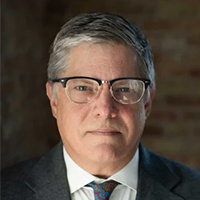 Manitowoc DUI-DWI Lawyers, Wisconsin
Manitowoc DUI-DWI Lawyers, Wisconsin
Sponsored Law Firm
-
 x
x

Click For More Info:
-
Keches Law Group
122 Dean Street Taunton, MA 02780» view mapSocial Security, Personal Injury, Workers Comp. Protecting Your Rights
Our team of experienced personal injury attorneys has over 130 years of combined experience representing individuals and families injured due to the negligence of others.
800-713-8650
Sponsored Lawyers
1-5 of 5 matches
Criminal, Felony, Traffic, White Collar Crime, DUI-DWI
Attorney Kirk Obear came to Wisconsin in 1999 after serving in the U.S. Air Force for more than ten years. He graduated summa cum laude from Mount Olive College in 1990 with a degree in Psychology and received his law degree from the University of Buffalo School of Law in 1994. While serving in the Air Force, Attorney Obear worked as both a prosecutor and a defense lawyer. As the Chief of Military Justice, he was responsible for the prosecution of military members under the Uniform Code of Military Justice. He also held an appointment as a Special Assistant United States Attorney, prosecuting civilians under Federal jurisdiction. In his next assignment as Area Defense Counsel, Attorney Obear defended clients throughout the country and around the world, earning him a national reputation for success. He was one of the few active-duty defense lawyers to receive the Meritorious Service Medal as a Captain. Attorney Obear received more than a dozen awards, citations, and medals, including a medal for Valor Under Enemy Fire in the Persian Gulf War. Through his combined experience as a prosecutor and defense attorney, Attorney Obear has litigated over 500 jury trials. He is currently admitted to practice before the Court of Appeals for the Armed Forces, the Air Force Court of Criminal Appeals, the U.S. District Court for the Southern District of Illinois, the U.S. District Court for the Eastern District of Wisconsin, the U.S. District for the Western District of Wisconsin, the United States Court of Appeals for the Seventh Circuit, the Supreme Court of Wisconsin, and the Supreme Court of the United States. To date, Attorney Obear’s advocacy has resulted in thousands of jury acquittals, amendments, or dismissals from defense motions filed on behalf of his clients. During his practice in the state of Wisconsin, Attorney Obear has served as the President of the Wisconsin Association of Criminal Defense Attorneys (WACDL) and is currently the Director of Legislative Affairs for WACDL. He has previously served on the Board of Directors for the National Association of Criminal Defense Lawyers (NACDL). Every year since 2007, he has been listed in Wisconsin SuperLawyers®, a distinction reserved for the top 5% of attorneys in the state. Attorney Obear has been a guest speaker on Wisconsin Public Radio regarding developments in law, and as an outspoken advocate against the death penalty. His teaching experience includes courses taught to other defense attorneys throughout the country.
(more)Criminal, Adoption, Child Support, Custody & Visitation, DUI-DWI
Attorney Brabazon devotes most of his practice to cases involving litigation. He has appeared in front of most Judges throughout Eastern Wisconsin and has extensive experience in both State and Federal Courts. Shane has represented various types of clients; CEO's of corporations, casino employees, managers, police officers, teachers, small business owners, mill workers, members of political families, and professional athletes. Attorney Brabazon is also proud of his representation of indigent clients, whether providing his services pro bono or representing indigent clients through appointment by the State or Federal Defenders office. Attorney Brabazon has handled very complex criminal, family and federal civil cases. Involved in numerous high-profile cases, Attorney Brabazon has been quoted in local, state and national newspapers and has appeared on CNN.
(more)


 Sean Flaherty Taunton, MA
Sean Flaherty Taunton, MA AboutKeches Law Group
AboutKeches Law Group Practice AreasExpertise
Practice AreasExpertise


